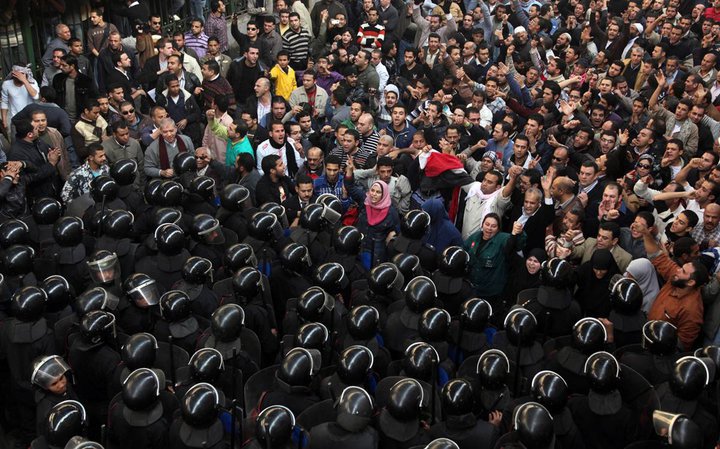#Egypt Blocked in China: Is Internet Access A Human Right?

China has blocked searches for #Egypt on its State-approved, State-controlled version of Twitter.
Searches for #Egypt on Sina (with over 50 million users) returns the message, "According to relevant laws, regulations and policies, the search results are not shown."
As we all know, to the shock and surprise of millions around the world, on January 27 Egypt pulled the plug on its citizens Internet access. Egypt is a very big place, a lot of people were effectively cut off from the outside world.
This is a frightening thing. But I don’t think may people realized just how much it would terrify them on a personal level.
Not in the I'm-afraid-I-won't-get-my-Twitter-distraction-fix kind of way. Far from it.
We Identify With Egypt
The online sentiment is that what Egypt has done, is wrong. More and more, we want the Egyptian people to have their rights- to the Internet - back.
It is scary to think about a government denying its citizens access to the outside world. Basic access to information. Access, if needed, to cry for help and expose exploitation - remember Haiti after the earthquake?
The people of Haiti needed water, medical help, and security: they needed their basic human rights. Seeing it on the Internet, outside cable news channels in media messages powered by people, no one could deny this.
Never before have ordinary citizens with little to no means been able to show what they are seeing, and in some cases, to expose horror and abandonment by a government that fails its citizens when needed most.
Remember what happened when people defied the police state in New Orleans and brought back Internet access?
We don't need to reflect on Internet history to know that abuse, torture, murder, and mass genocide happens when there is a communication blackout.
When Egypt shut off the Internet, people have gone wild looking for images of Egypt - what is happening there they don't want us to see?
The obsession with how they did it became a fixation. The technical aspects were explained, but that didn't settle the nagging feeling growing in all of us with free and unrestricted Internet access.
Which is why the hunger for understanding how to get around an Egyptian-style block is unsated.
Make a list of ways to defy an Internet blackout, and you've got our attention. It's like a zombie survival handbook: we think it can't possibly happen, but we still need to know how to survive.
We want to make sure this never happens to us.
That China is attempting an embargo on information about Egypt is not surprising to anyone. Countries that traffic and trade in human rights abuses are studying Egypt right now like it's time to get an MBA in communication.
They are blocking #Egypt because they are scared. They should be terrified.
The top three countries that censor the Internet are North Korea (#1), China (#2) and Burma (#3). On January 14, Barney Warf, professor of geography at the University of Kansas, published a definitive study of the geography of Internet censorship. Warf cited Myanmar, Iran and North Korea as among the most severe cases of governments that censor people’s access to the Web.
In 2010 a BBC poll found that 4 out of 5 people globally believe that Internet access is a fundamental right.
Anyone want to bet we're at 5 out of 5 now?
[Image: from The Women of Egypt Facebook Album.]
